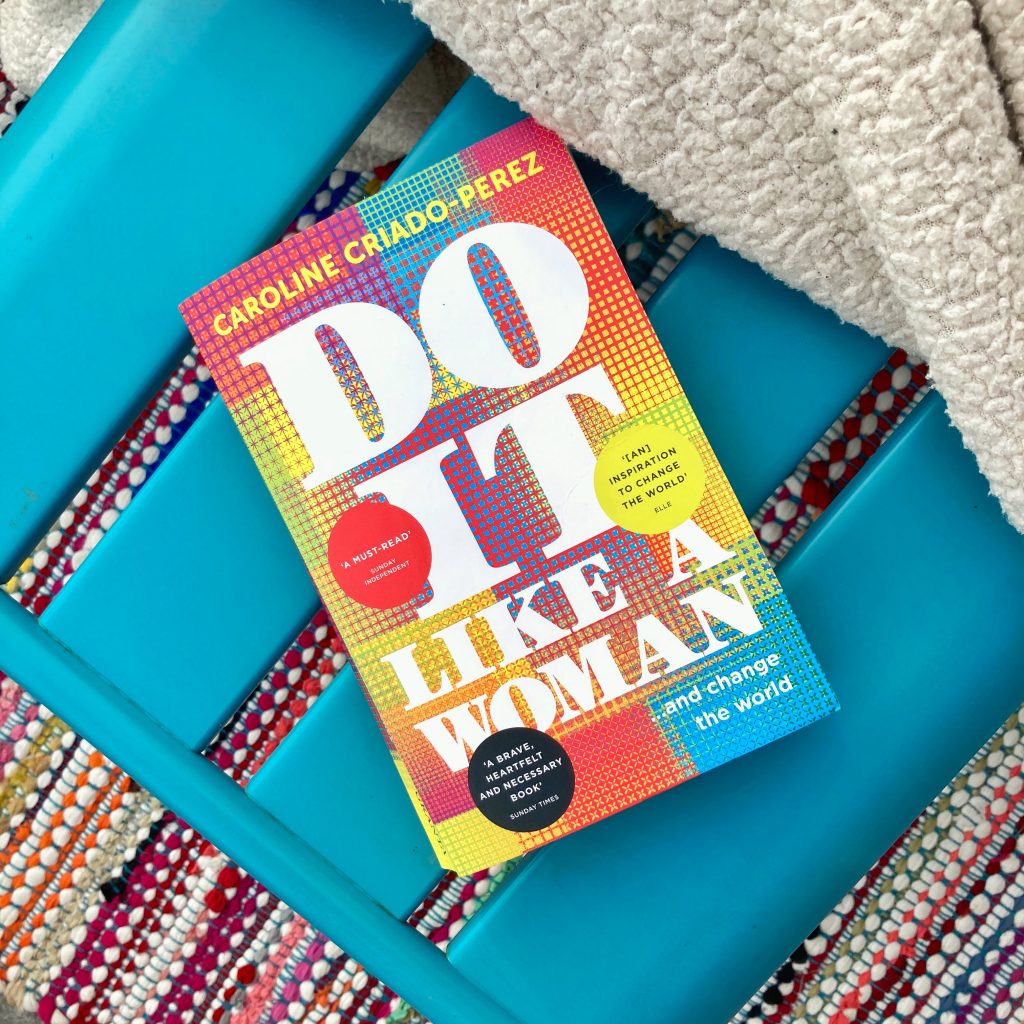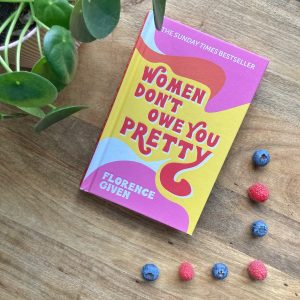do it like a woman …and change the world reads like a kaleidoscope of portraits of strong women all over the globe in 5 chapters.
criado perez cites a lack of role models for girls and women as one of the reasons she wrote this book in the introduction.
and girl, did she deliver.
i read it cover to back in under a week despite (or maybe because) working through one of the toughest weeks in my professional career.
but i had to read it.
i had to finish.
because it was just so damn excellent.
so damn… everything
chapter after chapter, criado perez introduces us to a selection of extraordinary women.
and seamlessly weaves facts and figures into the narrative.
by doing so, she provides a broader context that give the different stories even more breadth and weight.
until, at the end of the book, you realise that what she wrote is not a book about a selection of extraordinary women.
it’s a book about the female condition.
about what it means to be a woman in this day and age.
let’s start with a confession
i had set out to buy criado perez’s most recent book invisible women and had bought this, her first book, too.
out of pure impulse.
because of the title and the author. i didn’t think twice about it, didn’t even look at the back cover.
yet, once at home, out of all the books i bought (yes, i know, i have a problem), i chose to read this one first.
mirror of experience
criado perez’s narrative starts somewhat easy.
the first women and experiences she introduces felt familiar to me. familiar because these experiences were not unlike my own.
reflecting on the book after reading it, i wonder is this why i picked it up so eagerly in the first place?
i was looking for something that resonated with what i am living through.
something that connected with what i sometimes feel inside, that gave words to and thereby confirmed my experience as a woman in this world.
to say it struck a cord is an understatement.
a lesson in privilege
soon, however, do it like a woman moved on to portraits of women i encounter less often inside the bubble of my own life.
as the narrative crossed continents, it touched relevant and vital topics for women worldwide: from female genital mutilation to violence to children in indian brothels and then some.
i went from feeling self-righteous and confirmed in my experience to feeling naive and ungrateful.
i looked around my comfy safe apartment and saw all the things i take for granted on a daily basis.
then a wave of gratitude washed over me, leaving me with a sobered up version of sadness mixed with anger towards (what i consider) so much injustice in the world.
so much injustice in the world
it’s what i feel every time i’m confronted with my own privilege.
and considering the state of the world, it’s something i feel more and more of.
in awe
and yet, this is so not what do it like a woman is actually about.
in its essence, it is a very uplifting book.
every single issue that is raised is accompanied by at least one portrait of a woman who is actively fighting it.
actively using their voice, their wit, their resources to speak up, to advocate, to turn things around.
these strong women do not take no for an answer. they are undeterred in the face of threats, setbacks or other obstacles.
they know who they are.
they fight for what they believe is right. no matter the (personal) cost.
i find myself in deep awe of these women.
their courage, their resilience, their strength!
they give me immense hope. and they inspire me to do better myself.
the need for education
criado perez stresses the need for education on multiple occasions and i couldn’t agree more.
i would take it even further and say that this applies to everybody, even those who believe that they already have a basic education.
while reading the book, i wondered about luxembourg.
the question of how my country fares in terms of violence against women crossed my mind several times.
the embarrassing answer is that i don’t know.
this is where the educating comes in.
i might not know (yet) how to help fight all these injustices and what exactly to do about my privilege, but i can do two things:
- use my voice to amplify theirs (which i hope is that i’m doing here) and,
- educate myself further.
and this is what i intend to do.
who this book is for
this book is for
- women (all of them)
- men (jup, you guessed it: all of them), and
- those who are looking for role models of strong women and empowerment.
feedback
now, it’s up to you:
have you read the book?
if yes, do you agree with my sentiment?
if no, did this review help you to make a choice whether you should read it or not?
please let me know in the comments.
idealistically yours,
the simps














